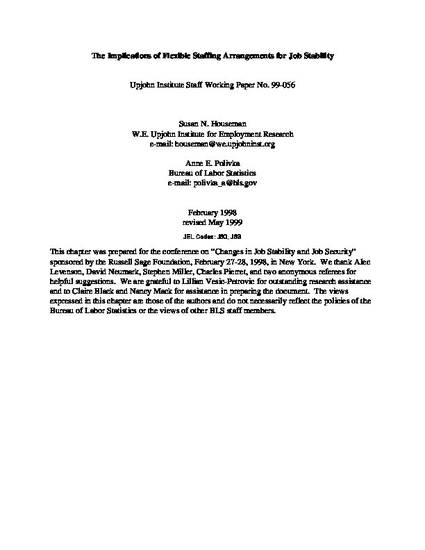
In this paper, we examine the job stability of workers in a wide range of flexible staffing arrangements: agency temporary, direct-hire temporary, on-call, contract company, independent contractor, and regular part-time work. We draw upon two data sources in our analysis. The first is a nationwide survey of employers on their use of flexible staffing arrangements conducted by the Upjohn Institute for Employment Research. This survey provides evidence on why employers use various types of flexible staffing arrangements and the extent to which employers move workers in these positions into regular arrangements within their organization. The second data source is the Supplement to the February 1995 Current Population Survey on Contingent and Alternative Work Arrangements. Exploiting the longitudinal component of the CPS, we compare the subsequent labor market status of individuals in flexible work arrangements and those in regular full-time positions in February 1995. We find that, except for independent contractors, workers in flexible staffing arrangements have less job stability than those in regular full-time arrangements in the sense that they are more likely to switch employers, become unemployed, or involuntarily drop out of the labor force within a year. However, the degree of job stability varies considerably across arrangements. We also show that the recent growth in certain types of flexible staffing arrangements could have translated into small declines in aggregate job stability and can account for a substantial share of the modest increase in job switching observed over the last decade.
